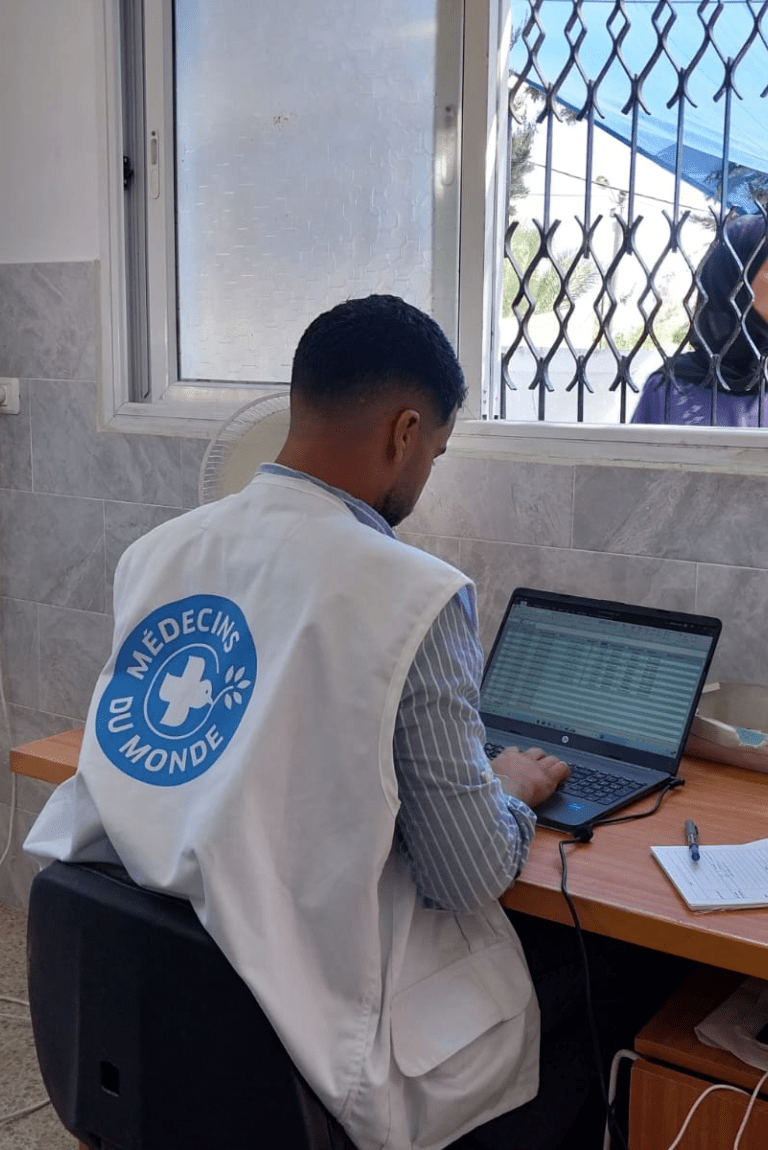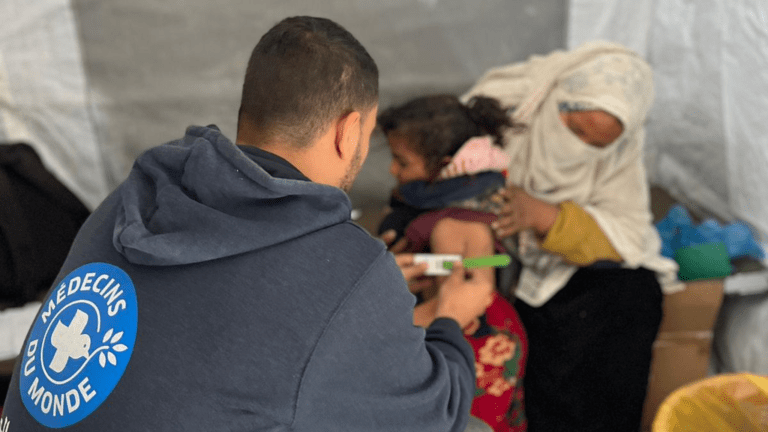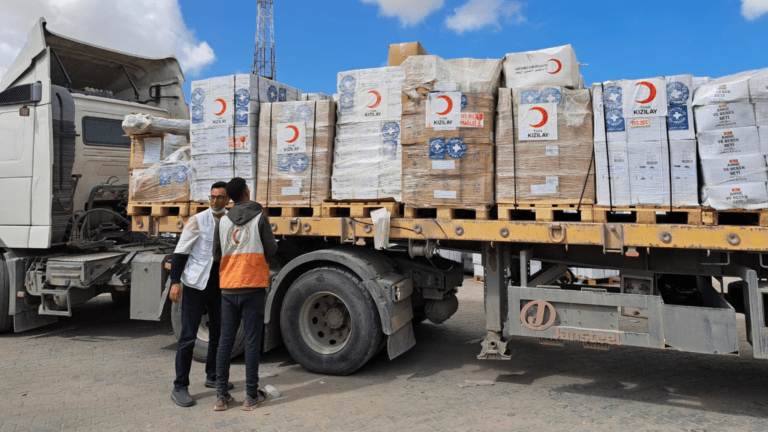JE DÉCOUVRE LE DON MENSUEL
JE DÉCOUVRE LE DON MENSUEL
JE DÉCOUVRE LE DON MENSUEL
JE DÉCOUVRE LE DON MENSUEL
JE DÉCOUVRE LE DON MENSUEL
JE DÉCOUVRE LE DON MENSUEL
JE DÉCOUVRE LE DON MENSUEL
JE DÉCOUVRE LE DON MENSUEL
JE DÉCOUVRE LE DON MENSUEL
JE DÉCOUVRE LE DON MENSUEL
JE DÉCOUVRE LE DON MENSUEL
JE DÉCOUVRE LE DON MENSUEL
JE DÉCOUVRE LE DON MENSUEL
JE DÉCOUVRE LE DON MENSUEL
JE DÉCOUVRE LE DON MENSUEL
JE DÉCOUVRE LE DON MENSUEL
JE DÉCOUVRE LE DON MENSUEL
JE DÉCOUVRE LE DON MENSUEL
JE DÉCOUVRE LE DON MENSUEL
JE DÉCOUVRE LE DON MENSUEL
JE DÉCOUVRE LE DON MENSUEL

New Israeli measures for registration of foreign INGOs and workers
Updated 17 March 2025
Content
1. March 2025 – Official Israeli process for applications
2. Other developments
3. December 2024 – Israeli decision on INGO registration and foreign worker visas
4. Interministerial committee
5. Criteria for registration and visas
6. Impact of the decision
7. Legal Analysis
8. Third state responsibilities
1. March 2025 – Official Israeli process for applications
On 11 March 2025, the final version of the new registration and visa process for INGOs and foreign workers was officially published on the Israeli government website.
Despite months of direct advocacy and engagement by INGOs with Israeli authorities, diplomats, and states since December 2024, the published guidance is even more restrictive than laid out in the original government decisions. The final version introduces an interim system for all organisations to register, additional barriers to registration, new grounds for rejection, and additional requirements for foreign workers. These changes force INGOs to make difficult decisions that will impact not only their own operations but also the broader humanitarian and civil society sector in Palestine. The implications extend beyond Palestine, as this process may set a dangerous precedent for the regulation and control of humanitarian actors in other contexts.
Key updates include:
-
Interim period and registration – A six-month interim period (9 March–9 September 2025) is now in effect. INGOs registered with the Ministry of Welfare before 9 December 2024 must reapply within this period or face automatic revocation and negative recommendations for foreign employees. Applications will have to be carried out through a website.
-
INGO registration requirements – Organisations must now submit, amongst others, details of representatives and all employees in-country, including Palestinian and foreign workers, with full identification and contact details.
-
Foreign workers – New applicants must remain outside Israel until their visa and work permit are granted. During the interim period, applications may be approved for foreign employees who entered Israel on or before 8 March 2025 and are currently residing as existing employees of organisations registered with the Ministry of Welfare.
-
Foreign worker recommendation requirements – Applications must now include, amongst others, marital status and family details, including spouse and children’s passport numbers and country of issuance.
-
New grounds for rejection – In addition to the previously known criteria:
– INGOs may be denied registration for having expressed support for legal proceedings in a foreign country or before an international tribunal against Israeli citizens for actions taken in the IDF or security forces.
– Foreign workers may be rejected if they have resided unlawfully in Israel, been deported, denied entry, or supported legal action against Israeli citizens for IDF or security force activities. -
Appeal and revocation – INGOs or foreign workers whose applications are rejected, revoked, or accepted under restrictive conditions have seven days to submit written arguments via the application management system. If an organisation’s registration is revoked, it must remove its employees from Israel, the West Bank, and Gaza within 60 days.
-
Ongoing reporting – Registered INGOs and approved foreign workers must update the committee via the application management system if any details change, or else they risk having their registration / recommendation revoked.
-
Compliance for previous applicants – INGOs that applied before these guidelines were published must register in the online system and ensure compliance. The committee may amend the guidelines periodically.
2. Other developments
In early February, AIDA submitted a legal challenge against the Government of Israel’s decision, arguing that it fails to meet the needs of INGOs, is inconsistent with Israeli administrative law, and violates international humanitarian law. In early March, the Israeli High Court rejected the challenge. It is unclear what further legal steps, if any, can be taken until the first registration rejections or revocation is issued.
Meanwhile, in late February, the Israeli Coordinator of Government Activities in the Territories (COGAT) privately informed humanitarian actors of plans to restructure Gaza’s humanitarian architecture (see Briefing Note: Israel’s New Plans to Dismantle Independent Humanitarian Access in Gaza and the oPt, last updated 4 March 2025). These plans would further restrict access to Gaza, allowing only organisations registered in Israel or approved by COGAT to continue operating. Additionally, only organisations whose entire staff have been vetted by Israeli authorities would be permitted to operate.
In February 2025, COGAT approached AIDA to pilot a new interim procedure for a limited number of visas requiring approval from MoLSA. AIDA members self-prioritized and submitted approximately 40 names. A response is still pending, though AIDA was informed that it should arrive within several weeks from submission. AIDA has engaged diplomats to pursue follow-up with the relevant Israeli authorities.
3. December 2024 – Israeli decision on INGO registration and foreign worker visas
On the 9 December 2024, the Government of Israel announced a new process for INGO registration and visa processes for foreign workers. The new measures pose a serious threat to INGOs ability to continue to operate in the Palestinian territory.
As the occupying power, Israel has a legal obligation to facilitate – not obstruct – humanitarian access. However, the criteria and process outlined in this newly released policy would make space for the arbitrary rejection and annulment of INGO registrations based on the determination of a coalition of Israeli ministries that have a demonstrated track record of restricting humanitarian activities. By asserting control over humanitarian operations and bypassing Palestinian authorities, Israel strengthens its sovereignty claims over the oPt in violation of international law, as affirmed by the 19 July 2024 ICJ advisory opinion which deemed Israel’s occupation of the Palestinian territory illegal, a finding reinforced by the 19 September 2024 UNGA resolution.
4. Interministerial committee
As outlined in the policy:
-
Within 60 days (of implementation), responsibilities for the registration of INGOs (operating in the oPt) and endorsement of INGO foreign workers would be transferred from the Ministry of Welfare and Social Affairs (MoLSA) to an interministerial team chaired by the Director General of the Ministry of Diaspora Affairs and Combating Antisemitism, and include senior officials from the:
– National Bureau for Counter Terror Financing in the Ministry of Defense
– COGAT
– Population and Immigration Authority (PIBA)
– Ministry of Foreign Affairs
– General Security Service
– Police
– Ministry of National Security and
– MoLSA.
A further government institution was added to the interministerial committee following the publication of the original Israeli government decision on 9 December 2024. The Ministry of Settlement and National Missions was included as a committee member on a government website, bringing the total number of Israeli government institutions on the committee to ten. This addition was made without notifying INGOs or clarifying it as an update. Notably, the Minister of Settlement and National Missions also joined the Israeli war cabinet in late 2024.
The inter-ministerial committee overseeing this process is set to meet for the first time on 28 January 2025.
5. Criteria for registration and visas
In addition, the criteria that would allow for the recommending or rejection by the above Committee is outlined as follows (the below is from an initial translation from the Hebrew version of the bill, it has not yet been formally translated).
An organisations registration may be rejected if:
- The organisation denies the existence of the State of Israel as a Jewish and democratic state;
- The organisation incites racism;
-
The organisation supports armed struggle, by an enemy state or a terrorist organisation, against the State of Israel; The organisation was declared by the Minister of Defense as a terrorist organisation under the Counter Terrorism Law, 2016, or a member, staff, partner, board member or founder of the organisation has been declared by the Minister of Defense as a terrorist operative under the Counter Terrorism Law; The organisation maintains ties or has had ties with a declared terrorist organisation or with a declared terrorist operative, and in particular, the organisation finances a declared terrorist organisation
- There is a risk to public peace and security as a result of the organisation’s involvement in criminal activities;
- The organisation’s stated purpose and its actual activities constitute a cover for illegal actions, according to the law in Israel or in the West Bank;
-
The organisation’s application for registration was based on false information or that, contrary to what is stated, the organisation’s activities aren’t carried out to assist in the welfare of Palestinians residents or that the organisation violated any of the terms of registration;
-
The organisation, including staff, partner, board member or founder of the organisation, knowingly publishes or has published in the seven years prior to the date of submitting the application for registration, a public call to boycott the State of Israel, as defined in the Law for the Prevention of Harm to the State of Israel through Boycotts, or has undertaken to participate in such a boycott [the law states that individuals or organisations who publicise a call for an economic, cultural or academic boycott against a person or entity merely because of its affiliation to the State of Israel and/or to an Israeli institute and/or to a specific region under Israeli control , may be sued civilly, in tort, by a party claiming that such a boycott might damage it];
-
The organisation actively promotes delegitimization activities against the State of Israel, as stated in Resolution No. B/188 of the Ministerial Committee on National Security Affairs (the Security Cabinet);
-
The list is non-exhaustive, and a decision can be taken based on additional considerations not listed above, depending on the circumstances of each case.
The same criteria as above is also applied when assessing the applications for visas for foreign workers, which as outlined in the policy, will be individually approved/rejected by a majority vote of the sitting committee members. A significant change is that whilst INGO registrations were previously granted on a permanent basis, under this new policy, all INGO registrations will be subject to review every three years. It is also unclear at this stage whether existing registrations will be carried forward, or whether all existing INGO registrations will be subject to immediate review following the 60-day implementation period.
6. Impact of the decision
Given the ministries involved and the broadly defined criteria, there is a significant likelihood that the vague and non-exhaustive criteria will be used to target INGOs perceived unfavourably by the Government of Israel. This includes penalizing INGOs for public advocacy or statements made by individual associates – such as staff, founders, board members or partners – up to seven years prior. This creates a climate of fear and politicizes humanitarian work, undermining its neutrality.
In addition to the requirements outlined in the original decision, the official guidance issued in March 2025 introduces further obligations, including a new requirement for organisations to submit staff lists. While this has not yet been explicitly framed as a vetting measure, it establishes a dangerous precedent, opening the door to intrusive screening practices. In recent months, COGAT has already pressured individual organisations in Gaza to vet their staff, raising concerns that this new requirement could evolve into a formalized vetting process. This would further entrench external control over humanitarian actors, allowing Israeli authorities to dictate who can and cannot work in aid delivery, as well as posing risks especially to Palestinian staff.
While it is unlikely that large numbers of INGOs will be rejected outright in the initial registration phase, due to the negative optics this would generate, the process is expected to be drawn out over time. Rejections are more likely to occur gradually, case by case, over the coming months and years, limiting opportunities for public outcry and making it difficult for INGOs to mount collective resistance. By the time the full implications of these restrictions become clear, it may be too late to reverse them.
Even if an organisation successfully obtains registration through this new process, approval can be revoked at any moment, keeping INGOs in a constant state of uncertainty. No organisation will ever be truly “safe” under this system, as the possibility of sudden, arbitrary revocation creates an environment of sustained fear and compliance pressure.
It is also likely that particularly outspoken organisations – those engaged in advocacy or critical of Israeli policies – will be disproportionately targeted. INGOs may be permanently pressured into self-censorship to avoid repercussions, further eroding humanitarian space and undermining impartial aid delivery. Multiple AIDA members have reported being called into meetings with COGAT in the first few months of 2025, being shown a dossier of ‘evidence’ including videos of the organisation’s public statements and ordered to discontinue delegitimizing Israel in this way (language that is directly referenced in the criteria in the new procedure).
As the bill and criteria stand, the majority of the INGOs working in the oPt – particularly those operational in Gaza – have participated in public advocacy and communications that could be interpreted by this Committee as meeting one or more of the criteria outlined in this bill, potentially leading to the annulment or rejection of their registration.
Political and security restrictions on INGOs and humanitarian workers obstruct aid delivery, weaken Palestinian communities, and accelerate displacement – particularly in Area C of the West Bank, where demolitions, settlement expansion, and restricted access are widespread. Should Israel fully annex Area C, organisations without recognized Israeli registration would be virtually unable to access especially affected areas in places like the Jordan valley, limiting their ability to support the most vulnerable communities.
These measures come at a time when humanitarian needs in the occupied Palestinian territory (oPt) are at their highest. It continues a deliberate pattern of policies and practices aimed at restricting life-saving assistance to Palestinian in recent years. These already include near-total denial of visas for International NGO and of permits for Palestinian humanitarian workers from the West Bank to enter Jerusalem and Gaza, non-recognition of UN travel documents, pressure to vet local staff, the banning and persecution of certain organisations and their staff, and – most recently – legislation banning UNRWA’s activities.
With the impending implementation of Knesset bills that would dismantle UNRWA, and a ceasefire enabling the long-awaited scale-up of humanitarian assistance to Gaza, INGOs are being urged to expand their efforts while simultaneously facing the threat of closure.
7. Legal Analysis
Internationally, INGOs will advocate for Israel’s legal obligation to facilitate access to INGOs to be recognized through the ICJ advisory proceedings on Israel’s humanitarian obligations, as requested in the Norwegian-led UNGA resolution A/79/L.28. Denying access to humanitarian workers based on non-security-related grounds contravenes the right of civilians affected by conflict to receive aid, exacerbating suffering and restricting essential services.
The consent of concerned states is generally required before offers to conduct humanitarian relief operations may be implemented; however, there are two situations in which states have no latitude to withhold consent to humanitarian relief operations: first, in situations of occupation; and, second, where the United Nations Security Council has adopted a binding decision (Oxford Guidance, p. 16 – 18).
According to article 59 of the Fourth Geneva Convention, if the whole or part of the population of an occupied territory is inadequately supplied, the Occupying Power shall agree to relief schemes on behalf of the said population and shall facilitate them by all the means at its disposal.
Denying access to humanitarian workers based on non-security-related grounds contravenes the right of civilians affected by conflict to receive aid, exacerbating suffering and restricting essential services. By assessing INGOs and foreign workers based on political criteria – such as alleged “delegitimization” of Israel – the decision undermines the independence, impartiality and neutrality required by humanitarian mandates, obstructing the delivery of life-saving assistance.
8. Third state responsibilities
As reaffirmed by the 19 July 2024 ICJ advisory opinion and reinforced by the 19 September 2024 UNGA resolution, third states have a responsibility to act against international legal violations.
UN Member States and humanitarian donors have a duty to safeguard humanitarian space and access as well as protect and support humanitarian organisations and the NGOs they fund – not merely through financial contributions but also by providing meaningful diplomatic and political backing. The latest Israeli measures create an existential threat to INGOs operating in Palestine, and third states must take urgent action.
Third States and humanitarian donors must:
-
Call on Israel to immediately reverse the decision, rescind the new INGO registration and visa requirements and maintain or improve the existing criteria.
-
Urge Israel to approve the INGO staff names submitted for approval from MoLSA as part of an interim visa procedure.
-
Urge Israel to reach out to NGO leadership and OCHA and engage consultatively to develop an approach that will allow for the swift delivery of humanitarian assistance to Palestinian populations and ensure there is transparency and clear methods for appeal/review where rejections of visas and registrations are made.
-
Take concrete political, diplomatic, and financial measures to hold Israel accountable for obstructing humanitarian action, rather than issuing statements of concern. This includes applying the same response as they would to any other country that cracks down on independent, Western-funded humanitarian organisations and restricts civil space.
-
Raise the threat to INGOs systematically in all engagements with Israeli authorities at all levels, making clear that these measures are unacceptable and will not be met with silence or inaction, and that all independent humanitarian and civilian actors, including INGOs and UNRWA, should be allowed to operate free from military, political, and economic interference.
-
Publicly and proactively back INGOs in their response to these measures, and, as donors, committing to support them regardless of the decisions they make in engaging with the new registration process – even if that means not applying under the new procedures, and regardless or the outcome of their potential applications. Donors must ensure that INGOs will not face financial penalties, reputational risks, or loss of funding due to their stance on the new Israeli requirements.
Without urgent diplomatic intervention, these measures will not only decimate humanitarian operations in Palestine but also set a dangerous precedent for restricting humanitarian action globally.













